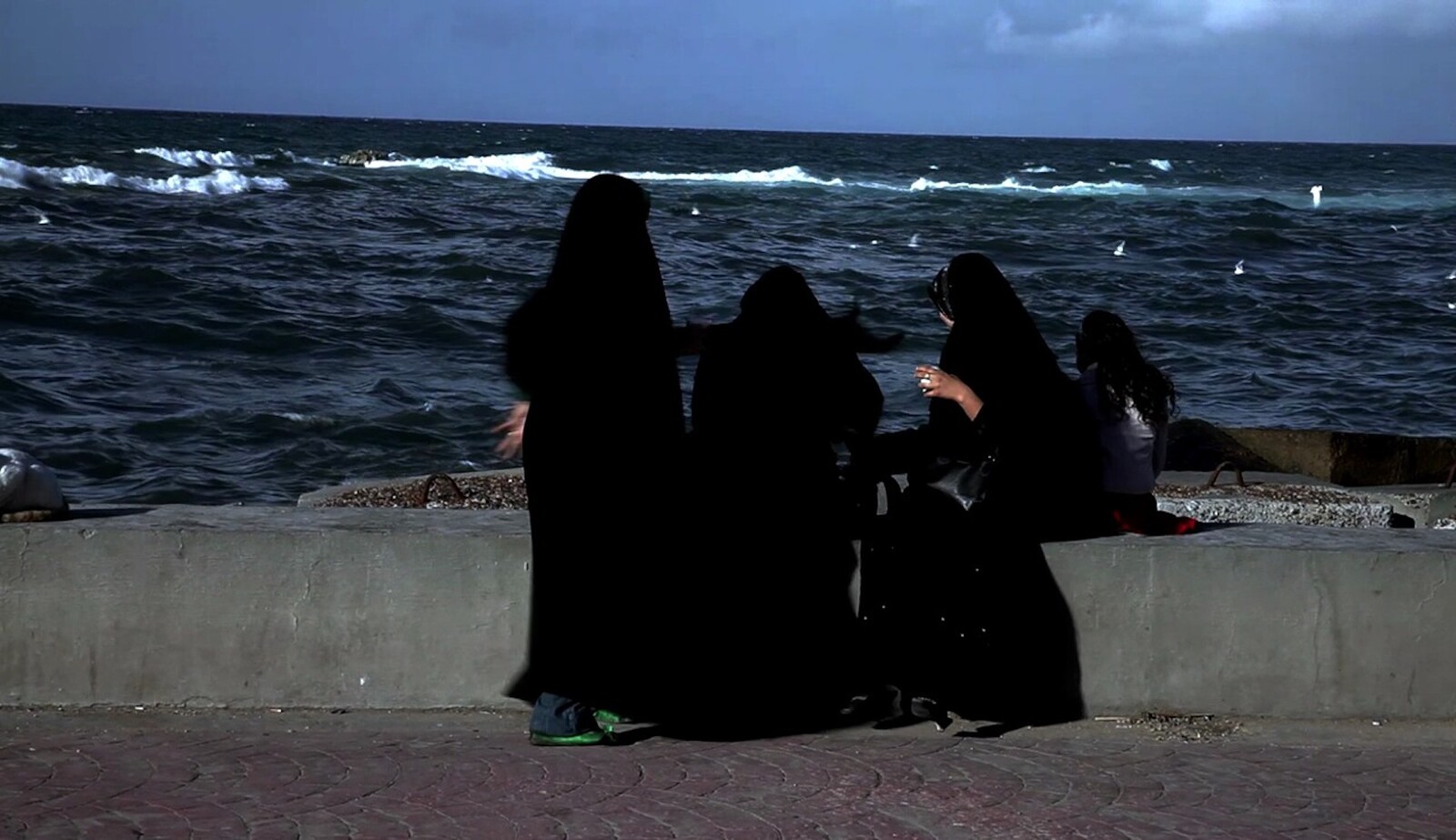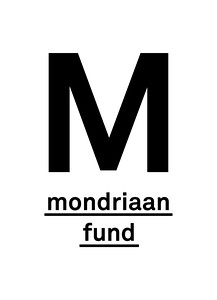Join us at e-flux this September for screenings, exhibitions, and presentations featuring Angela Anderson and Silvia Federici; Metahaven; and Irmgard Emmelhainz and Soyoung Yoon.
Program
Ecologies of Care: Screening and conversation with Angela Anderson and Silvia Federici
Wednesday, September 11, 7pm
The way one relates to land, water, and other so-called natural resources is reflected in the way goods, relations, and affinities are produced. Economic models that devalue and obstruct care produce the subjectivities that drive the current climate crisis and the ongoing disruption/destruction of ecosystems, displacing both humans and other-than humans, with blatant disregard for the embodied knowledge these ecosystems cultivate and nourish. In her new video work Three (or more) Ecologies: A Feminist Articulation of Eco-intersectionality – Part I: For the World to Live, Patriarchy Must Die, Angela Anderson brings together two geographically disparate locations on the globe: North Dakota and Rojava (Northern Syria). The film contrasts the highly industrial/technical nature of the destructive fracking industry in North Dakota’s Bakken region with a women’s autonomous village project in Rojava, emphasizing the urgent need for a societal shift towards relations of empathy and care.
Following the screening will be a conversation between the filmmaker and eminent feminist thinker and activist Silvia Federici on the topics of care, eco-intersectional empathy, and the necessity of redefining value in the face of impending ecological collapse.
The event will be livestreamed on e-flux.com/live.
Turnarounds. Metahaven at e-flux
September 20–November 2, 2019; Hours: Tuesday–Saturday 12–6pm
Opening: Friday, September 20, 6:30pm
Presentation by Metahaven: Monday, September 23, 7pm
e-flux is very pleased to present Turnarounds, a solo exhibition by Metahaven at e-flux’s space in Lower Manhattan. Opening on Friday, September 20 at 6:30pm and featuring a number of public programs starting with a presentation by Metahaven on Monday, September 23 at 7pm, the exhibtion will be on view through November 2, 2019.
Metahaven returns to New York with a project comprised of their film installation Hometown (2018), a new series of textile pieces, and an essay in e-flux journal issue 102 that will go live when the exhibition opens.
Hometown focuses its ultra-wide, hypnotic gaze on two cities—Beirut and Kyiv—that merge into a fictional home for the film’s protagonists, Ghina Abboud and Lera Luchenko. Fluorescent, lava-like animations alternate between images of industrial estates and overgrown gardens as Ghina and Lera lyrically describe the town. With their monologue in Russian and Arabic colorfully subtitled in English and Ukrainian, they eat ice cream. Their laughter solves puzzles, and there is a sunken city inhabited by adults who forgot what children taught them.
The script of Hometown draws on a genre of Russian children poems called perevortyshi (“turnarounds,” or “twisters”). In perevortyshi, positive statements are provisionally joined with their opposites to the great joy of the narrator and listener. But they are also fundamentally questioning our reliance on verbal statements in order to approach reality. In a forthcoming essay, “Sleep walks the street,” Metahaven interrogate our current tendency to aestheticize politics by relying on metaphorical and allegorical construction.
In addition to the film installation and the essay, a new series of digitally-created textile pieces will be installed throughout the public and private spaces of e-flux’s space on East Broadway.
Turnarounds. Metahaven at e-flux is generously supported by the Mondriaan Fund.
New York book launch: Irmgard Emmelhainz, Jean-Luc Godard’s Political Filmmaking
The author in discussion with Soyoung Yoon
Wednesday, September 25, 7pm
Join us at e-flux on Wednesday, September 25 at 7pm to celebrate the launch of Irmgard Emmelhainz’s newest book Jean-Luc Godard’s Political Filmmaking, published by Palgrave Macmillan (2019). The evening will feature a conversation between the author and theorist Soyoung Yoon.
Jean-Luc Godard’s films are inscribed in a reflection on the contradictions embedded in the relationship between ethics and politics and the artists’ capacity to represent or to be involved in historical or actual political events. These interrogations translate into matters of visibility and technique and to how to render present the absent in relationship to action or intervention and poiesis. Emmelhainz inscribes Godard’s oeuvre within the tradition of materialist aesthetics and describes his films as “dialectical materialist.” Godard’s work is an aesthetic-political project that has shifted according to historical changes in the past 50 years: from the “politics of representation” and its crisis in the 1960s, to the politics of counter-information in the 1970s, to an exploration of the new modes of subjectivation by capitalism in the 1980s and a search to resacralize mechanically reproduced images, to Godard’s critique of the culture and memory industries, to his controversial juxtaposition of the Shoah and the Nakba, to the post-political call for the redistribution of the sensible and for peripheral language.
Stay tuned to upcoming programs on our website; or subscribe to our events mailing list for e-flux.
New on e-flux Video & Film
e-flux journal presents: Art After Culture? New York
Day One: Boris Groys, and Hito Steyerl, introduced by Anton Vidokle
Day Two, Session One: Franco “Bifo” Berardi, Irmgard Emmelhainz, Liam Gillick, and Mary Walling Blackburn, introduced by Kaye Cain-Nielsen and Brian Kuan Wood
Day Two, Session Two: The Otolith Group, Charles Mudede, and Reza Negarestani, introduced and moderated by Brian Kuan Wood
Day Two, Session Three: Ruanne Abu Rahme and Basel Abbas, Keller Easterling, and The New Red Order, introduced by Kaye Cain-Nielsen
Tom Holert, “Contemporary Art’s Epistemic Politics”
Tom Holert questions the functions and claims of contemporary art within economic and political systems that rely on the management of data and affects.
Joan Kee, “When Art Lays Down the Law”
Art historian and former lawyer Joan Kee discusses three lines of inquiry into art and law via legal practice, legal theory, and the “legal imagination.”
New e-flux podcast episodes; available for listening on e-flux, iTunes, Spotify, and Soundcloud
Franco “Bifo” Berardi on the future possibility of living well
e-flux journal Editorial Assistant Andreas Petrossiants speaks to Franco “Bifo” Berardi following his recent texts “(Sensitive) Consciousness and Time: Against the Transhumanist Utopia” in issue 98, and “Game Over” in issue 100.
Satellite music series: Peter Zummo and Eve Essex
Sanna Almajedi talks to composer and trombonist Peter Zummo, and Eve Essex, a musician who performs with alto saxophone, piccolo, voice, and electronics.
Closed for installation: Fiona Connor
Andreas Petrossiants, Editorial Assistant at e-flux journal, speaks to artist Fiona Connor starting from her exhibition at SculptureCenter, Closed for installation, Fiona Connor, SculptureCenter, #4.
ANOTHER WAR IS POSSIBLE: Karl Holmqvist
Artist Karl Holmqvist reads “ANOTHER WAR IS POSSIBLE” and “NUMBERS,” and speaks with artist and e-flux founder Anton Vidokle.



